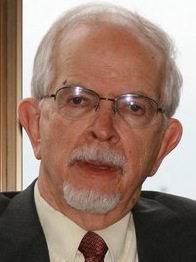BDS originated as a political movement in July 2005 as a "call from Palestinian civil society." It was signed and sent out from a large number of civil society groups within the West Bank and Gaza.
It is important to note that, unlike the Kairos Document, BDS is a strategy which the civil society of Palestinians has developed.
Kairos Palestine, which is the primary focus of Kassis' book, originated in Bethlehem as a statement from Palestinian Christian leaders. The document was released in December 2009. It is a theological document of faith, not a proposal of strategy. Circumstances since the original document was written in 2009 have grown even worse as Kassis explains (9):
"Jerusalem is being forcibly de-Arabized and systematically Judaized with unprecedented speed and aggression: Life for Palestinians there becomes less and less bearable as house demolitions, evictions, arbitrary arrests and interrogations, residency revocations, and the imprisonment and house arrests of children all increase. The siege on the Gaza Strip remains and intensifies unabated.
"The Israeli government is forgoing its longstanding public relations campaign -- its ongoing propaganda as the only "democracy' in the Middle East -- and reverting instead to openly racist laws like the one that seeks to criminalize individuals and organizations that call for boycott."
BDS, with its secular origins, is not promoted by the Kairos Document, but BDS has been adopted by some Christian groups as a practical strategy which Palestinians propose the West adopt as a means toward putting economic pressure on Israel to give up its oppressive control of the Palestinian people.
UPDATE: Since this essay initially appeared in The Electronic Intifada, some supporters of the BDS movement have written me to take exception to my statement that the "BDS is not promoted by the Kairos Document."
I stand by that statement, though I would certainly concede that the Document has called for a positive "response" to sanctions and boycotts.
I did not, however, find in the Document any positive "response" to the strategy of divestment. Furthermore, the Document is a theological statement, not one designed to promote a political strategy.
Perhaps it comes down to how we define "promotion" in a heated, ecclesiastical political environment.
As we begin a new year, it is important to keep in mind that in the US, the United Methodist Church and the Presbyterian Church, USA, will hold national (international for the Methodists) meetings in the spring and summer of 2012.
At those meetings, endorsing the strategy of BDS will be under consideration. Advance word is that pro-Israel forces will make every effort to defeat or soften those pro-BDS resolutions.
Resistance of American churches to BDS illustrates how effectively the Israeli ("we are the victims under outside threat") narrative works to prevent Americans from hearing the call of either the Kairos Document, or the economic strategy of BDS.
The modern use of a Kairos statement by an oppressed population dates back to the first edition of a statement from South African Christians in 1985, a document intended, Kassis reports, "to provide an alternative discourse to the dominant theological thinking" of the day.
This South African document confronted the apartheid structures maintained by the minority white population of that society.
Subsequent Kairos documents have emerged in Kenya, Zimbabwe, India and Latin America, each in ways appropriate to the historical moment addressed, all insisting that the Christian faith calls for the oppressors to acknowledge the sinfulness of their oppressive conduct.
(Note: You can view every article as one long page if you sign up as an Advocate Member, or higher).





